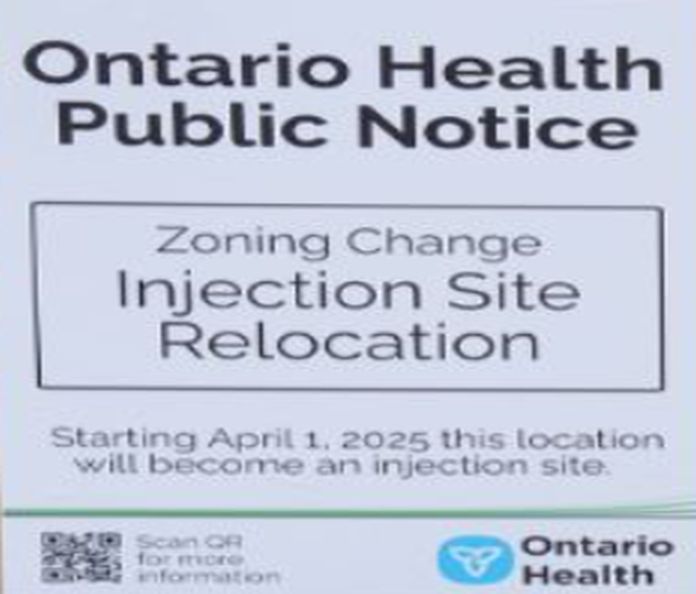TORONTO, Canada – The Ontario government is protecting the safety of children and families while improving access to recovery and treatment services by approving the transition of nine drug injection sites that are located within 200 metres of schools and licensed child-care centres into Homelessness and Addiction Recovery Treatment (HART) Hubs. These HART Hubs, located in Toronto, Ottawa, Hamilton, Kitchener, Guelph and Thunder Bay, are part of the province’s $378 million investment to support the creation of a total of 19 new HART Hubs across the province.
“We have heard loud and clear from families across Ontario that drug injection sites near schools and child-care centres are making our communities less safe,” said Sylvia Jones, deputy premier and minister of health. “Through these nine new Homelessness and Addiction Recovery Treatment Hubs, part of our government’s $378 million investment to create a total of 19 hubs across the province, we are taking the next step in our plan to keep communities safe while improving access to mental health and addictions services.”
In response to serious safety concerns raised by communities, families and parents, Ontario is taking the next step to create a system of care that prioritizes community safety, treatment and recovery. To support these goals, the province passed the Safer Streets, Stronger Communities Act and the Community Care and Recovery Act to prohibit the operation of drug injection sites within 200 metres of a school or child-care centre. Each provincially funded site was given the opportunity to submit a proposal to transition to a HART Hub and all nine applications have now been approved.
“We are investing more than any government in Ontario’s history to create a nation-leading system of mental health and addictions care,” said Michael Tibollo, associate minister of mental health and addictions. “The new HART Hubs will give people struggling with addiction the support and treatment services they need to achieve lasting recovery.”
By March 31, 2025, the nine approved drug injection sites will be transitioned to HART Hubs. These hubs will be eligible, on average, to receive up to four times more funding to support treatment and recovery under the model than they receive from the province as a consumption site. To assist with transitioning, the sites will also receive one-time funding for start-up costs.
HART Hubs, similar to existing hub models in Ontario that have successfully provided people with care, will reflect regional priorities by connecting people with complex needs to comprehensive treatment and preventative services. These include a range of services to meet local needs such as primary care, mental health services including addiction care and support, social services and employment support. HART Hubs will also add an estimated 375 highly supportive housing units, in addition to addiction recovery and treatment beds, that will help thousands of people each year transition to more stable long-term housing.
Applications for the remaining HART Hubs are under review and will be announced in the coming weeks. All HART Hubs will have the goal of being operational by April 1, 2025.
Through Your Health: A Plan for Connected and Convenient Care and building on the Roadmap to Wellness, the province is taking action to connect individuals to integrated mental health and addictions services, where and when it is needed.





